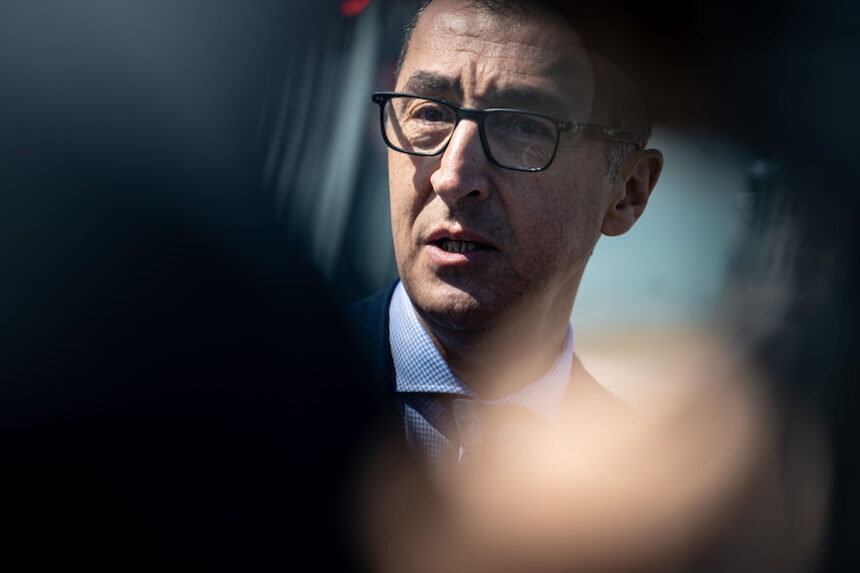Emmanuel Thomas, DPA, Tuesday, July 25, 2023
German minister knocks Poland over Ukraine grain export brouhaha

BRUSSELS – German Agriculture Minister Cem Özdemir criticized Polish import restrictions on Ukrainian grain on Tuesday, calling them simply an election campaign maneuver.
“It cannot be that solidarity with Ukraine is undermined because of a domestic election campaign,” Özdemir said on Tuesday in Brussels ahead of a meeting with European Union agriculture ministers.
Poland is preparing to elect a new parliament in October though the date for the vote has not yet been announced. The only person who is happy about the restrictions is Russian President Vladimir Putin, Özdemir said, adding, “we should not do anything that makes Vladimir Putin happy.”
Poland and some other countries in eastern Europe imposed restrictions on grain exported from Ukraine, in response to protests by farmers fearful of the increased competition given the greater imports from Ukraine.
Alongside Poland, Hungary, Slovakia, Romania and Bulgaria also want to extend import restrictions if the European Commission does not find another solution.
The commission has extended restrictions on grain imports from Ukraine until September 15.
However, Ukrainian President Volodymyr Zelensky has called on the EU to open its borders to agricultural products given the blockade on exports across the Black Sea.
European institutions could take more sensible measures than closing the borders to a particular product, Zelensky said on Monday evening.
“Any extension of these restrictions is absolutely unacceptable and clearly not European,” he said.
Ukraine, one of the world’s largest grain producers, is struggling to ensure its products leave the country since Moscow allowed a deal to elapse that created a safe corridor for vessels carrying grain to cross the Black Sea.
Özdemir added that it was clear that Ukraine’s neighbours would not be left alone. He is talking with his colleagues about how to help Poland in particular and the other countries, he said.
As a possible solution, he suggested that products could be shipped sealed to ports in the Baltic States, for example.

